Jessica Castañeda and Paola Tipás, in Ecuador, and Niger Timothy Houston, in Costa Rica, are currently undertaking their Internship, one of the essential courses in the third year of their studies. As they immerse themselves in new experiences, they share a common goal: learning in the field alongside EARTH graduates who are now leaders in their respective countries. José Eduardo Jácome, who manages the Phajcha dairy plant in Ecuador, and José Eduardo Quirós, an expert in ornamental plant cultivation in Costa Rica, are mentors who have opened their doors and knowledge to these third-year students, inviting them to explore and work on each project as true professionals.
This connection across generations highlights not only these graduates’ commitment to hands-on education, but also their mission to have a positive impact in their communities by sharing their knowledge and experience.
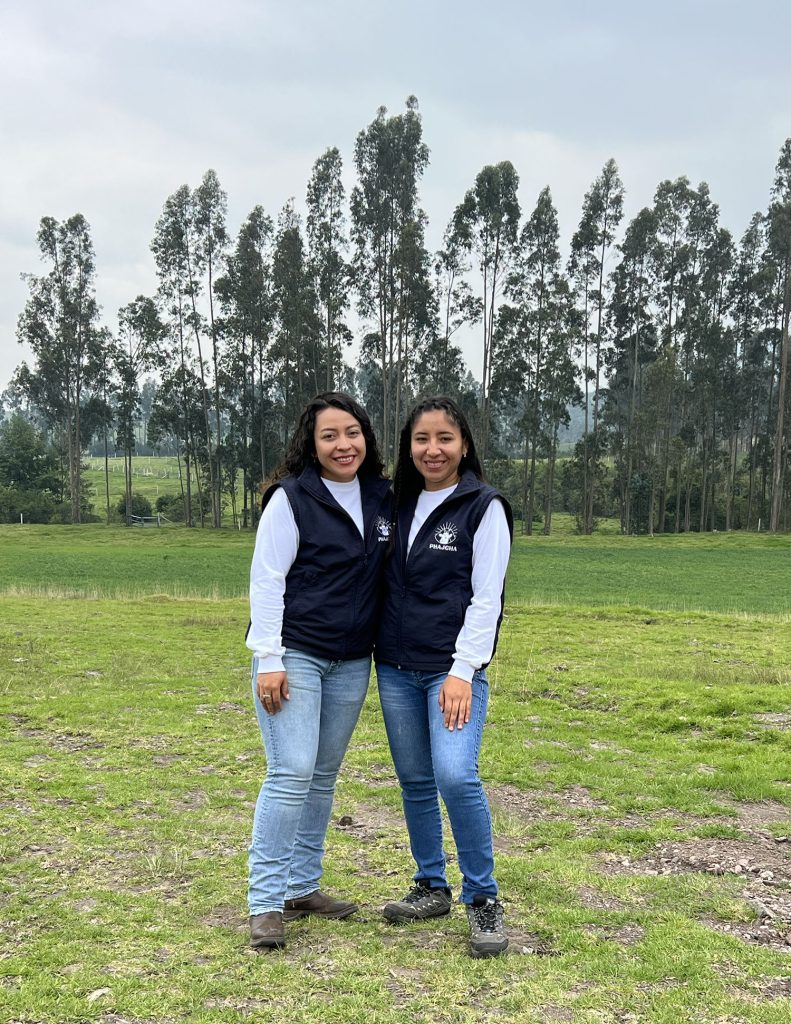
An Internship in Ecuador
Third-year students Jessica Castañeda (Guatemala) and Paola Tipás (Ecuador) are fully immersed in their professional Internship experience in Ecuador. They are working at Phajcha, a dairy company owned by EARTH graduate José Eduardo Jácome (Class of 1999, Ecuador) and his family.
Jessica’s responsibilities range from milking cows to caring for and managing organic crops. She has also learned practices like planting, transplanting, and greenhouse management, with a particular focus on tomato cultivation.
Paola, on the other hand, is working in food processing, specifically creating sour cream and a local cheese known as “queso de hoja” (leave cheese). She is responsible for standardizing processes and improving existing products. Learning the importance of fully engaging in these processes has been a key element in making her experience enriching.
Working with a graduate has been crucial for both students, as José Eduardo incorporates EARTH’s learning-by-doing philosophy into his mentorship. This approach allows them to not only observe, but to actively participate in product creation, decision-making, and proposing solutions to daily challenges at the company.
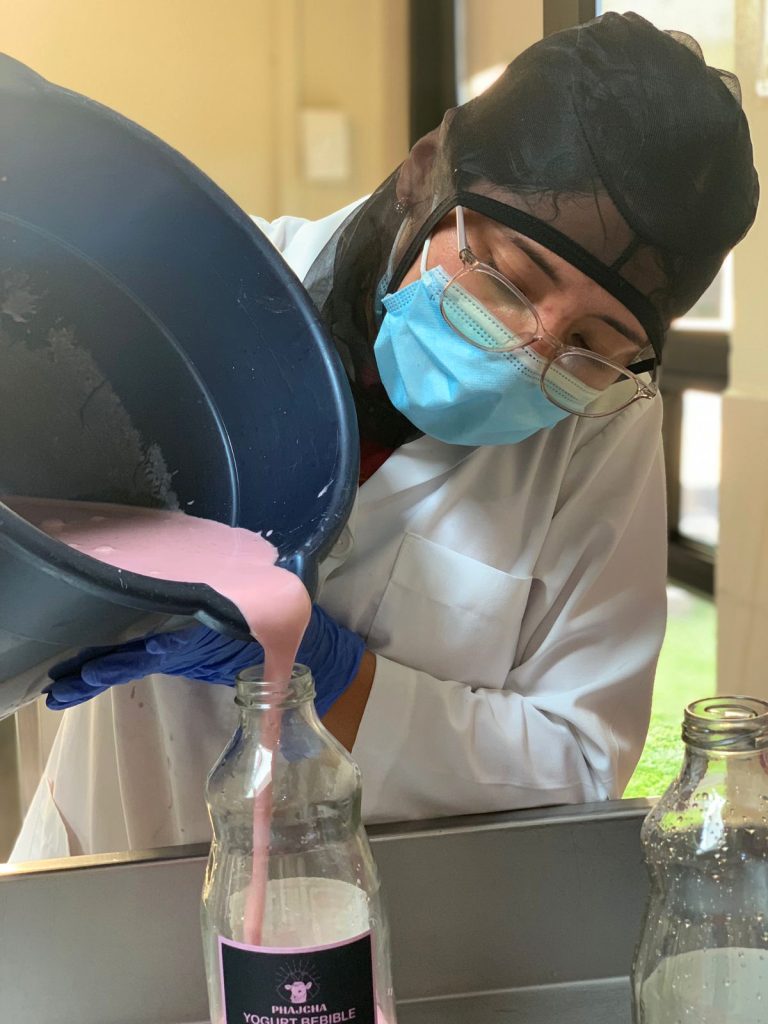
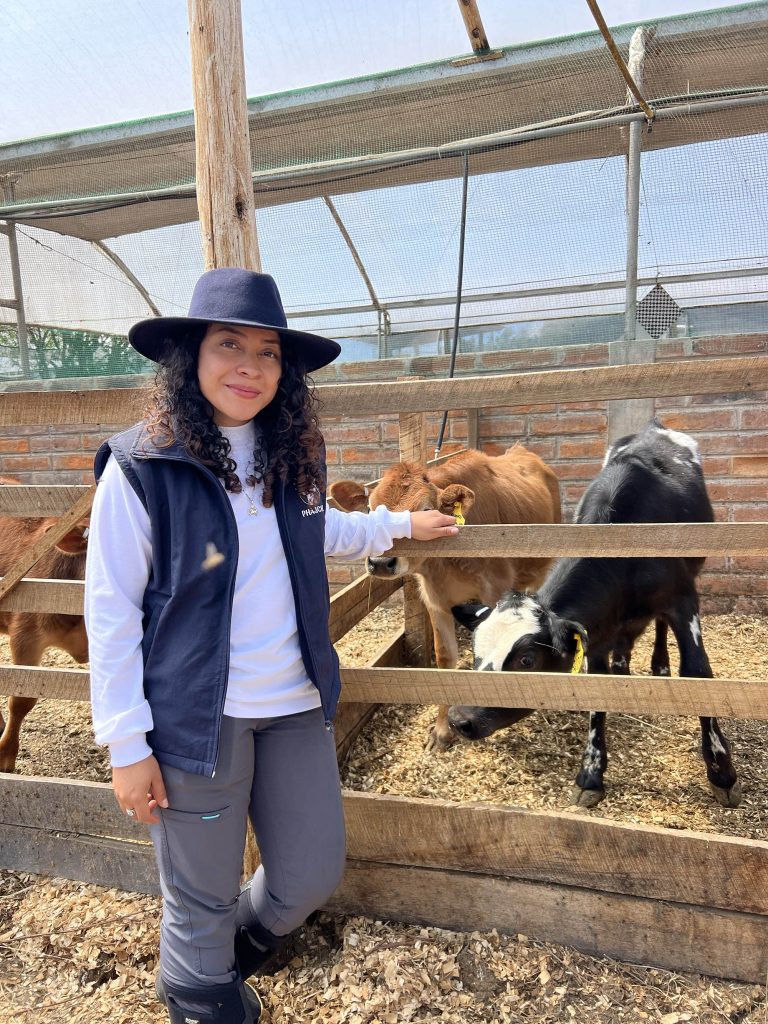
“I think being with a graduate and being allowed to get involved in the processes has made my Internship much more rewarding. José Eduardo has that EARTH mindset of letting you do things and follow the learning-by-doing motto, so you truly engage with the process. That’s what I liked the most. I’ve been able to be part of the processes at the dairy plant and develop new products—nervously at first, but with the full support of the Engineer,” Paola shares.
This is the first time José Eduardo has opened his home and business to EARTH interns. His goal is to provide an experience where the students leave with a clear understanding of the processes and know how to apply them in the real world.
He recalls his own professional Internship in the United States, where he worked on a family farm—a hands-on opportunity that gave him direct insight into how a dairy plant operates, an experience which inspired him to pursue that career. After returning to Ecuador and starting his own business, he decided to offer students a similar opportunity to learn through practical field experience.
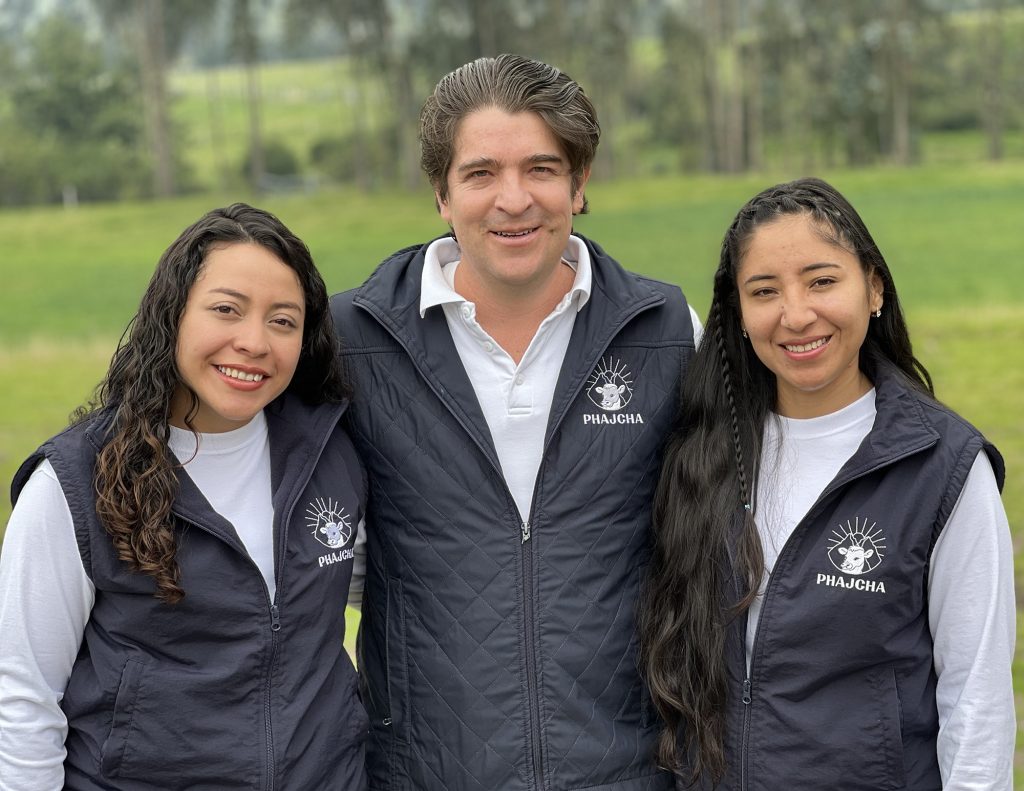
“If I could relive my four years at the University, I’d do it in a heartbeat. It was an incredible technical and personal experience that deeply shaped me. Now, I feel motivated to give back by offering a good practical experience to the students who come to work with me,” José Eduardo shares.
An Internship in Costa Rica
Niger Timothy Houston (Class of 2025, Grenada) had heard many times about the convergence of theory and practice, but he never imagined that his first step into the real world would lead him to work at an innovative company for his professional Internship in Germania, Costa Rica.
During the Work Experience 300 course that all third-year students take before their Internship, Niger began working with Ornamentales Sapo Verde (OSV), a company dedicated to cultivating and exporting ornamental plants with a focus on sustainable agricultural practices. It was there that he met EARTH graduate José Eduardo Quirós (Class of 2023, Costa Rica). Thanks to Niger’s effort, creativity, and interest, José and the OSV team offered him the opportunity to complete his Internship with them.
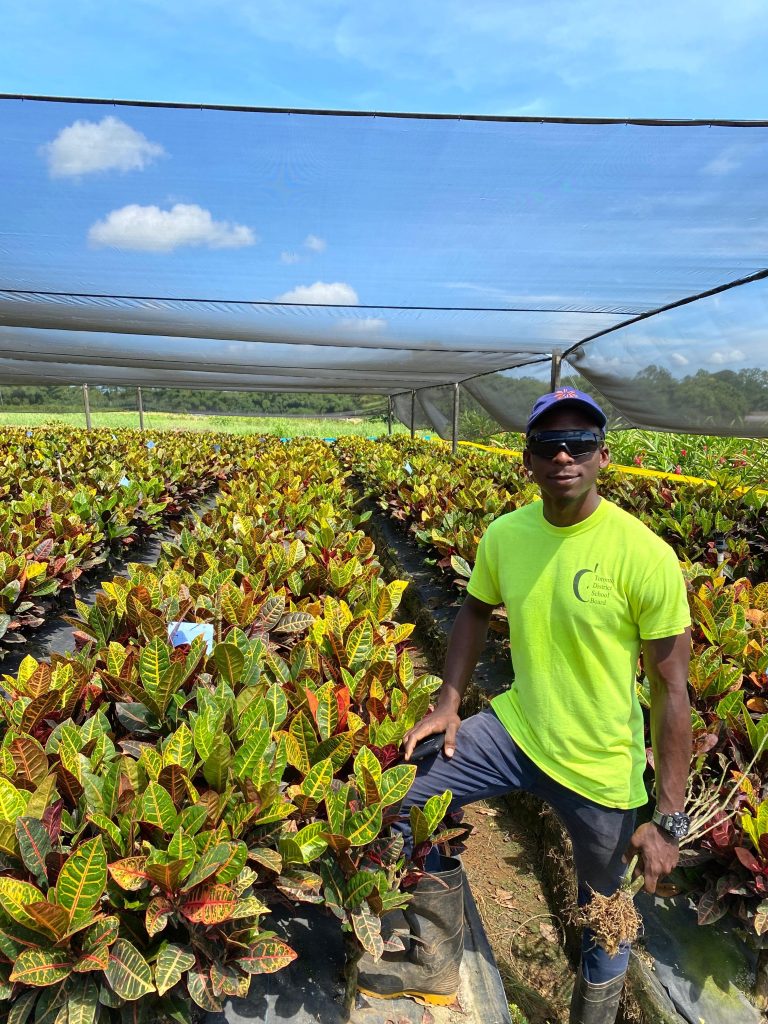
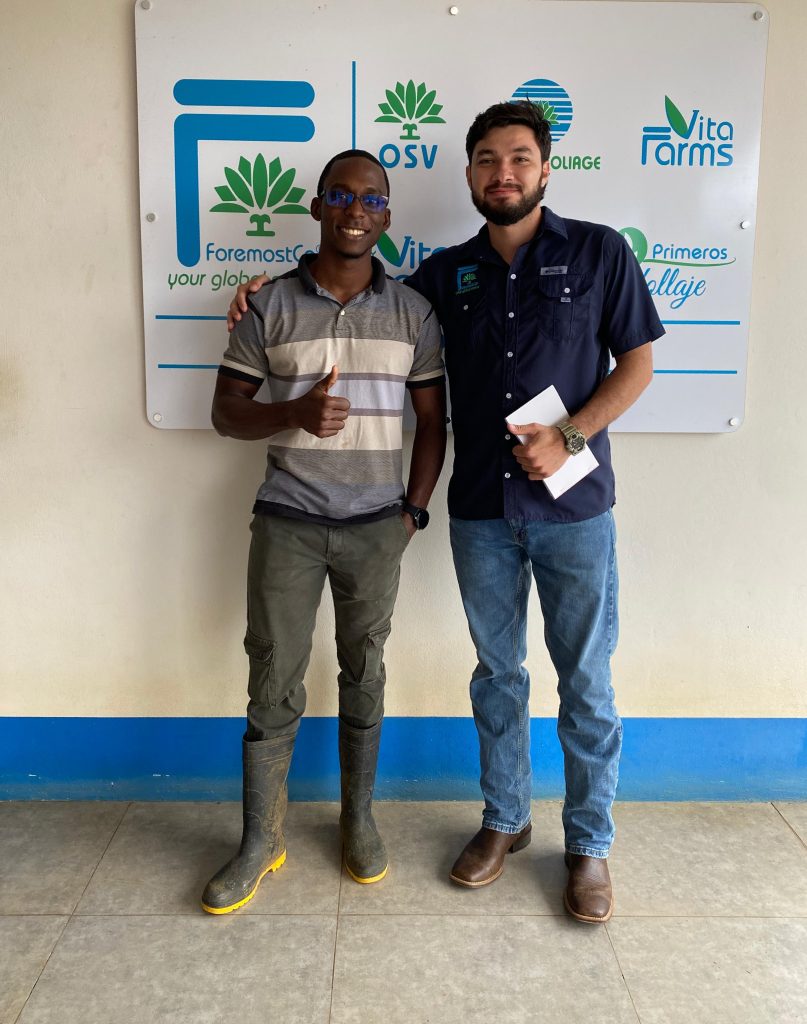
José, who graduated just a year ago, understands firsthand the transition from student to professional. By inviting Niger, he not only offered a position but also extended a hand to enter a world full of responsibilities and learning. As with any new experience, the first weeks were challenging for Niger, but José was there, guiding him along the way. “The first thing he made me feel was that my opinion mattered. He doesn’t treat me just as an intern. He takes me to the field, shows me the plants, and asks what I think about a technical process or a project. He makes me feel like part of the team, like just another professional,” says Niger.
During his Internship, Niger has worked on projects ranging from soil research and evaluating plant varieties to waste management. One of the challenges he has enjoyed most is investigating how temperature and humidity conditions affect the storage of ornamental plants, specifically 13 varieties of Sansevieria.
“I’m working to determine the nutrients this plant needs at different growth stages. Based on the data we gather, we can optimize fertilizer applications and encourage faster plant growth,” he adds.
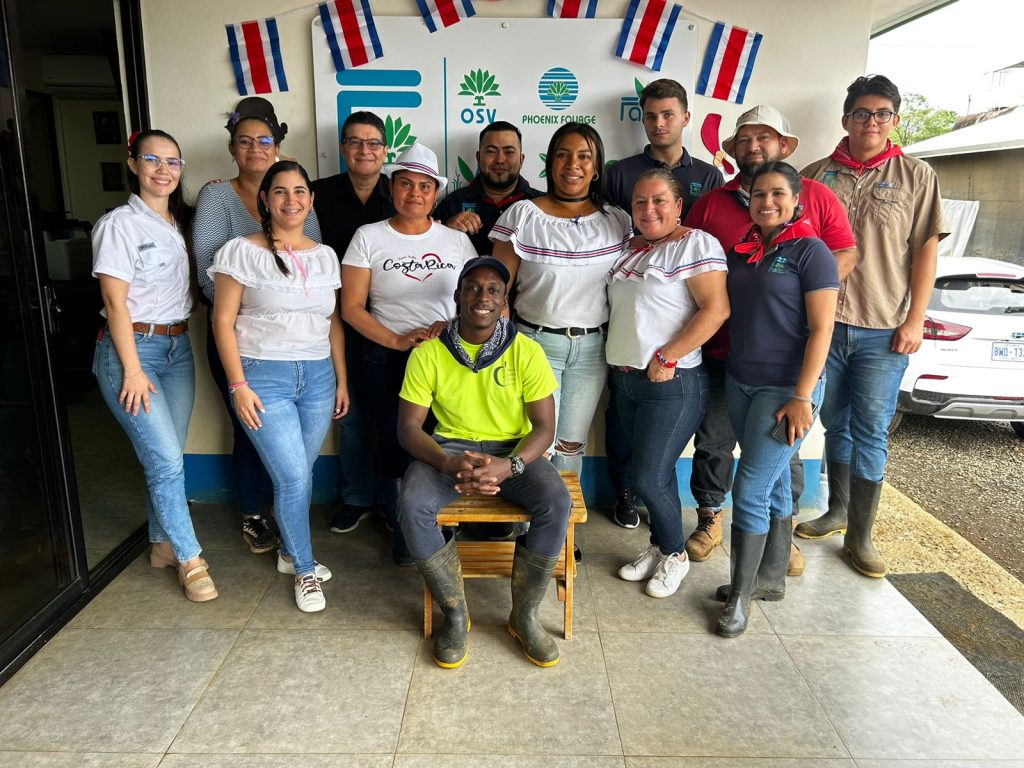
This freedom to propose, research, and experiment is what Niger values most about his Internship. José has undoubtedly been instrumental in creating a horizontal experience that allows Niger to explore his full professional potential. “José has shown me what it means to be a leader: listening to others, giving them the freedom to propose ideas, and guiding them with patience. At first I felt lost, but little by little, thanks to him, I started to feel like I was part of something bigger,” Niger says gratefully. José has not only taught him about plants and Agricultural Sciences but also about the importance of collaboration and mutual trust in a team.
As Jessica, Paola, and Niger complete their Internships, they are gaining not only new skills but also a deeper understanding of fieldwork and the impact they can create in their communities. Through their guidance and generosity, José Eduardo Jácome and José Eduardo Quirós have shown these students that learning-by-doing is more than a teaching technique—it’s a lifelong commitment and a legacy that grows across generations.
